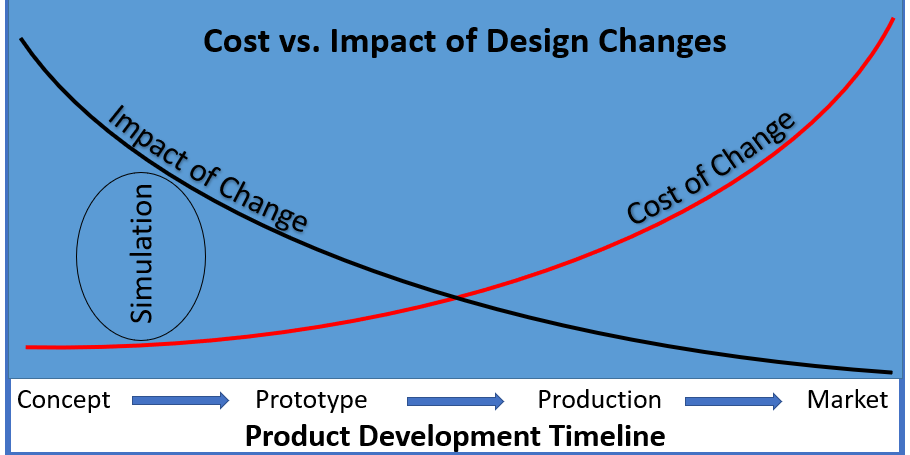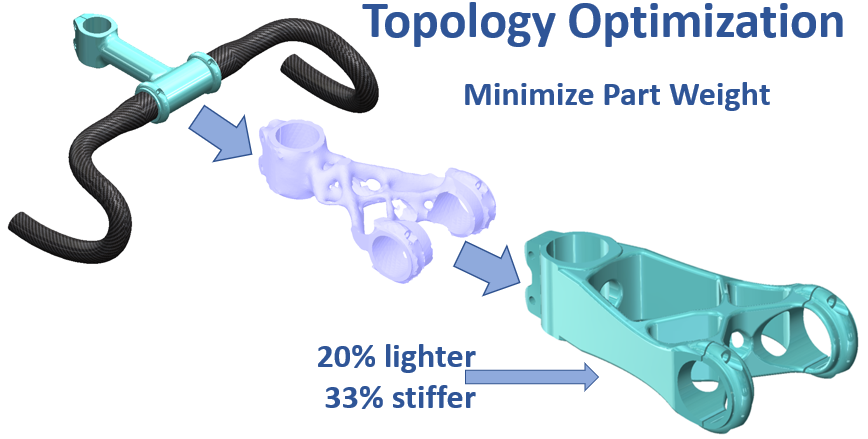
Why use our Simulation services?
Because every product gets tested - Eventually
Discovering failures late in the development process can be catastrophic

How do you ensure your products won't fail?
Do you rely on building costly prototypes, followed by repeated redesigns? Do you cross your fingers while testing your initial production parts, praying to avoid rebuilding expensive tooling? Or, do you wait to learn about failures from your customers? Regardless of your approach, every product eventually undergoes testing to ensure it meets customer requirements.
FACT: The cost of addressing design problems grows exponentially the later they're discovered in the development process.
At Situs Engineering, our expert simulation services reveal design issues early in development when changes are cost-effective and can have the greatest impact on performance, functionality, and cost.
What type of simulation service do you need to prevent failures?
Stress Analysis with FEA: We use Finite Element Analysis (FEA) software to predict stress and deformation in your parts and assemblies under various loading conditions, from impact and thermal to vibrational and wind loads. This helps foresee potential failures without the need for expensive prototypes.

Stress Analysis of Large Steel Structure

Topology Optimization
Our software optimizes the strength-to-weight ratio of your designs, reducing weight while maintaining performance. You don't need a final design in mind; we can start with a simple model of the maximum design space and all the mating features and loads, then let the topology study optimize the design.
For more information watch Topology Optimization (Thanks to MLC CAD Systems).

Nonlinear Simulation
We analyze time-dependent loads, changing contact conditions, nonlinear materials, and structural stiffness changes due to deformation. This allows us to accurately model real-world situations beyond the capabilities of linear static analysis.
Dynamic Analysis
Dynamic simulations help us understand how your product performs under shock loads, random vibrations, or harmonic loads. For example, impact testing motorcycle
wheels per JASO standards.

Fatigue Analysis
Predict failures in products subjected to repetitive (e.g., cyclical, harmonic, and random vibration) loading events. These failures may occur at stresses well below
the material's yield strength.

Creep Analysis
We predict how products will stress-relax or "creep" under long-term loads, a common cause of failure for plastic
and elastomer parts or steel parts
at elevated temperatures.

Computational Fluid Dynamics (CFD)
CFD studies visualize fluid flow and heat transfer through and around your components to measure fluid trajectories, velocities, pressures, forces, and temperatures.. This helps optimize designs, reduce drag, address overheating issues, and measure wind loads.



Injection Mold Flow Analysis
Simulates the injection molding process to predict manufacturing-related defects in your parts before getting mold quotes. The analysis lets us optimize feature locations, wall thicknesses, gate locations, cooling channel design, and molding process parameters. The simulation can predict part warpage and even balance the runner system. Finding design issues early can save you thousands of dollars in mold rework costs.

Get in Touch: Ready to discuss your specific engineering and simulation needs?
Contact us today for expert guidance and a free quote. Your project's success starts with a conversation – reach out now!

